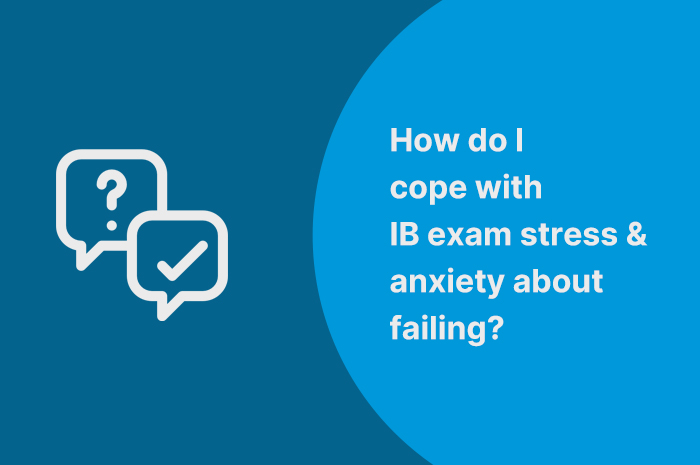Exam times are stressful, and IB exams are known to be intensive, with questions that require the learner to dig deep into the topic and showcase their knowledge of theory, understanding of the subject, and application of the concepts. The most important tip every IB alum shares about the IB programme is that one must study every day and regularly solve past questions papers. The important thing is not to leave your exam preparations for the last moment. IB exam scores add up to 80% of the total points and they are highly relevant to getting marks overall. If you are appearing for the IB Diploma Programme (IBDP) exams, your performance in the written exams is critical to determining your college admissions.
The IB curriculum design involves the learner with the course and the subjects from the first day. Apart from the essays, lab work, and projects, the learner has to complete assignments and work on CAS. Each day comes with a fresh set of activities centred around the course or otherwise. The biggest mantra for IB learners is time management. So, avoid procrastinating, study regularly, make notes and consistently maintain a routine to balance academic activities.
Learners often like to berate about the lack of sleep because of all the studying and activities they must participate in, or projects they must submit. Sometimes burning the late night oil is inevitable, but it should not be habitual. The practices we form in school shape our personalities and habits. Also, inadequate sleep can affect your cognitive capabilities and become detrimental to your learning capability.
Snacking on processed “junk” foods, lying in bed while reading, or sitting for long stretches in front of the computer, not stepping outdoors to play or go for a walk, and not talking to friends or family, all are detrimental to your well-being. You can cultivate discipline through mindful eating habits and exercising regularly too. Plus, being physically fit, will help you concentrate better and approach your studies with a fresh mind.
It is perfectly normal to panic, be stressed and have doubts about your capability. Everyone has that classmate who is always sorted and in control, or is doing exceptionally well in everything. However, you don’t see the efforts they are putting in, considering their aims in life, or the difference in abilities. Talking to friends, peers, parents and teachers can help process many of your fears. Also, don’t hesitate to seek professional help if you feel overwhelmed. It is perfectly alright to see a qualified therapist or counsellor when you feel it is necessary.
It is easy to lose a few hours browsing the internet, watching reels, and chatting with friends on IMs. When you sit to study, switch off all social media and IM notifications so that you can concentrate completely on the work you are doing. You can assign yourself some time of the day to browse your phone so that you aren't completely cut off from your social life.
All work and no play makes Johnny a dull boy. So, schedule frequent breaks in your calendar for the day. Even when exams are nearing, clear out some space for a break during the preparation time. However, reserve this break time for some positive activities. You can read a book, go for a walk, spend time with your family, take a nap or indulge in your hobby.
Exams teach us a lot about ourselves, so focus on yourself, understand your strengths and weaknesses and work with them. If you are weak in a subject, give it more time and try to do your best in it. The subjects you are good at, try to do better in them by practising regularly because that is where you score. Some strategy, hard work, and sincere efforts from the beginning are the only key to doing well.
© Knowledgeum
